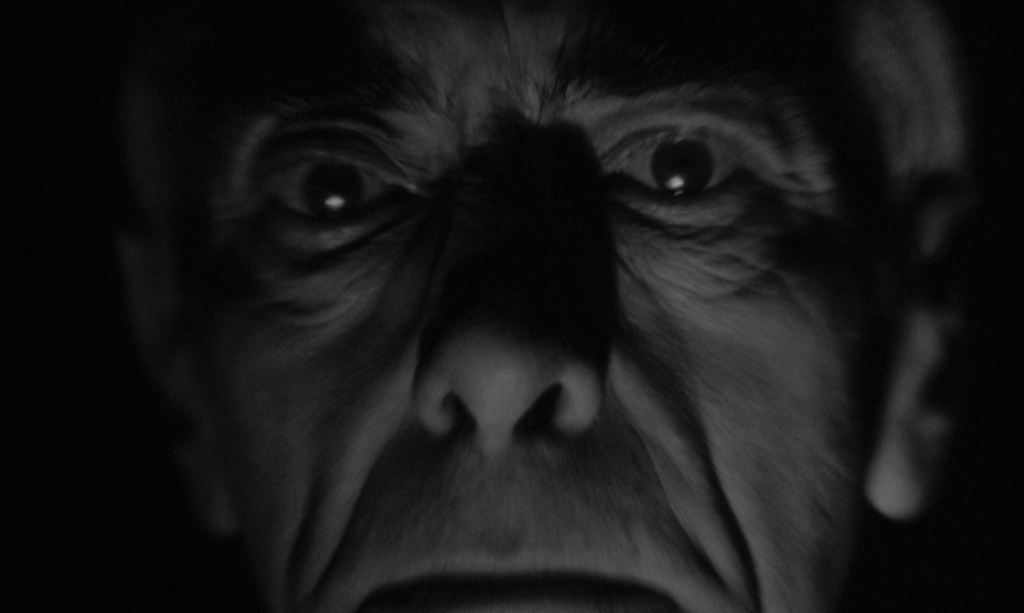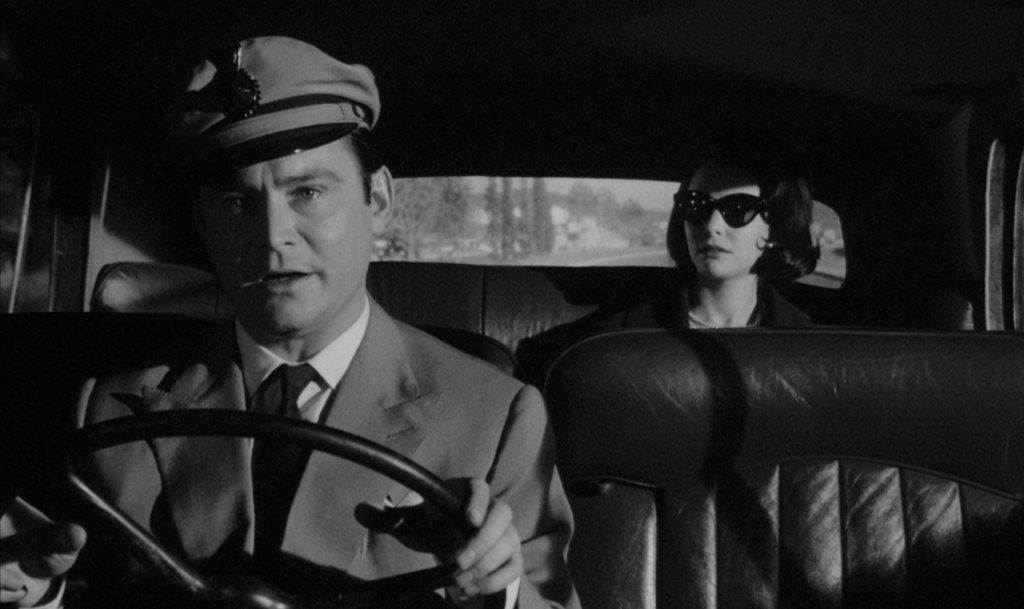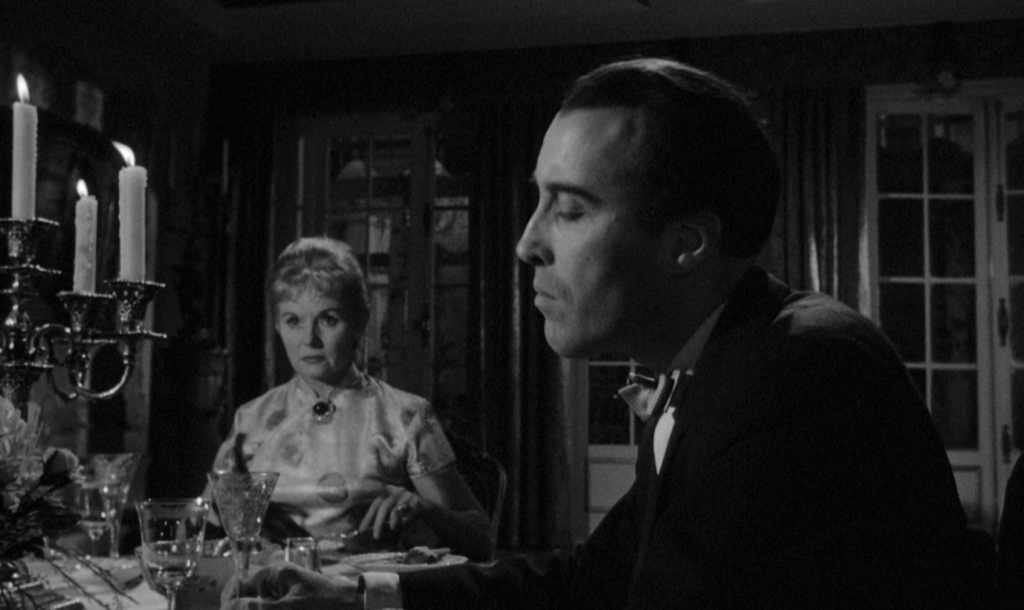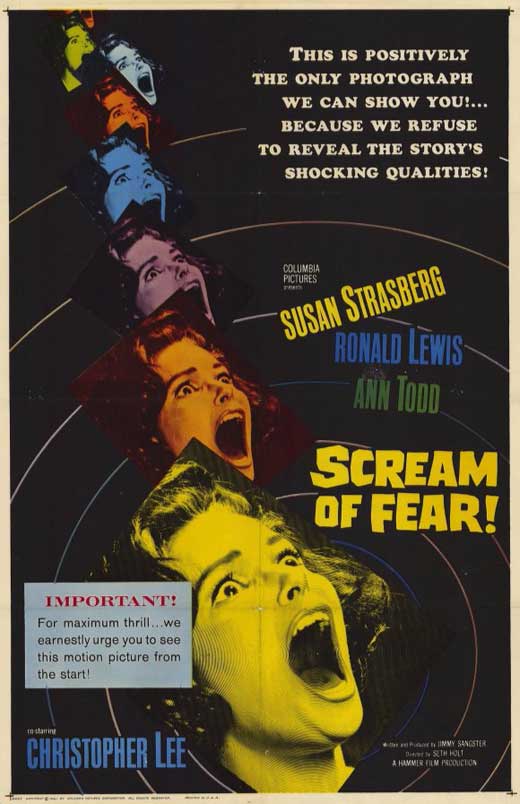
Sometime in the early to mid-2000’s I was introduced to Scream of Fear – or, as it was titled in its native U.K., Taste of Fear (1961) – in a big-screen double feature with another Hammer chiller, The Revenge of Frankenstein (1958), at a revival theater in Milwaukee. The Cushing film played first and was the main attraction, as far as my friend and I were concerned; we knew nothing about the lesser-known black-and-white suspense film that was to follow. Was this a ghost story? A Psycho-inspired slasher? As it unfolded, we could recognize it as part of the gaslighting subgenre (young woman is misguided into thinking she’s losing her mind), but screenwriter Jimmy Sangster soon proves that he has more – much more – up his sleeve. We came away from the theater liking Revenge of Frankenstein, but loving Scream of Fear. Seen in a darkened theater, the audience visibly leaning forward in their seats and responding to every jolt and turn with audible appreciation, it was clear that Sangster and director Seth Holt had created a thriller that aged almost wrinkle-free. In the years since, I acquired a collection of Scream of Fear lobby cards and a poster which proudly hangs in my home, Susan Strasberg screaming in terror at anyone who dares venture into my laundry room. And with each viewing, my affection has not diminished. Indicator recently released TASTE of Fear (let’s get that title right) as a supplement-heavy region-free Blu-ray as part of their stellar Hammer Volume Four: Faces of Fear – which also includes Revenge of Frankenstein, so you can program the same double feature. I envy those who are viewing it for the first time. I will try not to spoil too much and keep this review brief.

Robert (Ronald Lewis) drives Penny (Susan Strasberg) to her father’s home on the French Riviera.
Strasberg – daughter of Lee Strasberg (influential for his promotion of Method acting) and already a former Tony nominee for The Diary of Anne Frank – plays Penny, confined to a wheelchair after a horse-riding accident, who at the outset of the story is traveling to the French Riviera to meet with her father (Fred Johnson), whom she hasn’t seen in many years. Once she arrives, she learns that her father has been away for several weeks, leaving her alone with a chilly stepmother she’s never met, Jane (Ann Todd, The Seventh Veil); the family doctor, Dr. Gerrard (Christopher Lee, donning a French accent); and the estate’s hired driver, Robert (Ronald Lewis, from Hammer’s The Full Treatment). On her first night, she hears a strange pounding outside, and she guides her wheelchair past the swimming pool and into the swimming cabin, where she sees her father – apparently a corpse – sitting in a chair. She leaves screaming, but by the time help arrives, the corpse is gone. And so this repeats the following night. She confides to Robert that someone may be trying to prove that she’s insane, perhaps to prevent her from inheriting her father’s fortune if he truly is dead. Together, the two try to find her father’s body, believing it’s hidden somewhere on the property. As many have noted, including Sangster himself, the inspiration behind Taste of Fear was not Psycho, but Henri-Georges Clouzot’s twisty international hit, Les Diaboliques (1955). This would also be a source of inspiration for the many Hammer suspense thrillers that would follow Taste of Fear, most written by Sangster. This is the best of that line, rivaled in my mind only by The Nanny (1965), also very well directed by Seth Holt and penned by Sangster.

Ann Todd and Christopher Lee.
Confession here: as a rule, I generally dislike twists – or at least how they’re usually deployed. If everything we have previously witnessed is a complete lie, I feel like I’ve wasted my time. If whole suspense scenes lose all suspense once you know what’s “really” going on, I feel betrayed. I may be the only person on the planet who groaned at the end of The Sixth Sense, so know where I’m coming from here. Twists do have a place, and are quite at home in the mystery genre; obviously I’m not against the idea of withholding information from the audience and then giving them the opportunity to view everything they’ve seen in a new light. (Most recently, Rian Johnson plays with this brilliantly in Knives Out.) But you should leave feeling satisfied, not just manipulated. The audience plays an important role, whether as viewers of a film or readers of a book – the author is building a confidence with them, and the emotions the story evokes, the danger that the characters are experiencing, should be real at least on some fundamental level, even if the stakes are later revealed to be something quite different than we thought. On that level, Taste of Fear not only passes the test but provides a lesson. Sangster takes the story in unexpected directions right up to its final minutes, but it doesn’t lessen what you’ve experienced up to that point. He plays the game honestly, and most important, the revealed story is actually more interesting than the story it supplements – deepening it. Aspiring screenwriters, take note.










